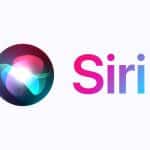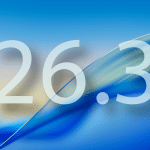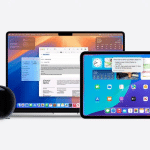Healthcare today is undergoing a major transformation. What was once a paper-heavy, manual system has evolved into a streamlined, technology-driven environment designed to meet the growing demands of modern patients and providers. With the rise in chronic conditions, aging populations, and the need for coordinated care, healthcare systems are looking for innovative ways to manage resources and improve outcomes. That’s where technology steps in.
From digital health records to telehealth platforms, new tools are changing how healthcare providers deliver care and how patients experience it. These advancements aren’t just about convenience. They’re reshaping the very foundation of healthcare management. By making processes more efficient and improving patient care coordination, technology is helping to solve some of the biggest challenges in the industry.

One of the most significant areas where technology is making an impact is in the management of chronic diseases, which leads us to our first example.
Improving Chronic Disease Care with Technology
Chronic diseases like diabetes, heart disease, and hypertension affect millions of people and require ongoing, coordinated care. Without proper management, these conditions can lead to serious health complications and increased healthcare costs. That’s why finding effective ways to support patients with chronic illnesses is a top priority.
One powerful tool that’s helping healthcare providers address this challenge is chronic care management software. This type of software is designed to make it easier for healthcare teams to monitor, support, and communicate with patients who have ongoing health conditions. It helps manage care plans, track patient data, and ensure regular follow-ups, all of which are essential for improving long-term health outcomes.
By streamlining communication between patients and providers, chronic care management software ensures that nothing slips through the cracks. It supports compliance with Medicare guidelines, helps reduce hospital readmissions, and enhances overall care coordination. Tools like these are making chronic disease management more efficient and effective, benefiting both patients and healthcare systems.
Enhancing Patient Engagement with Mobile Health Apps
Mobile technology has become a major part of everyday life, and healthcare is no exception. Today, there are countless mobile health apps designed to help patients track their health, stay on top of medications, and communicate with their care teams.
These apps empower patients to take a more active role in their health. Whether it’s monitoring blood pressure, tracking fitness goals, or receiving medication reminders, mobile health apps put health management at your fingertips. This kind of engagement encourages better adherence to care plans and helps patients feel more connected to their providers.
For healthcare management, mobile apps offer a direct line of communication between patients and care teams. It improves patient satisfaction, reduces missed appointments, and provides real-time data that providers can use to adjust care plans as needed.
Leveraging Telehealth for Accessible Care
Telehealth has been a game-changer in healthcare, especially in recent years. With the COVID-19 pandemic pushing more services online, telehealth quickly became a standard part of healthcare delivery. But even beyond the pandemic, its benefits continue to reshape healthcare management.
Telehealth allows patients to consult with doctors, nurses, and specialists remotely, reducing the need for in-person visits. It is especially helpful for patients in rural or underserved areas who might otherwise struggle to access care. It also helps those managing chronic conditions by providing regular check-ins without the hassle of traveling.
For healthcare providers, telehealth makes managing appointments, follow-ups, and routine care more efficient. It reduces no-show rates, frees up in-person resources for more critical cases, and helps providers manage their time better. This shift toward virtual care is improving access, convenience, and resource management across the board.
Streamlining Operations with Electronic Health Records (EHRs)
Electronic health records (EHRs) are one of the foundational technologies revolutionizing healthcare management. These digital systems store patient information in a centralized location, making it easily accessible to authorized providers.
EHRs reduce the need for paper charts and manual record-keeping, which means less chance for errors and lost information. They also improve communication between different providers involved in a patient’s care. For example, if a patient sees a primary care doctor, a specialist, and a physical therapist, EHRs ensure that everyone has access to the same up-to-date information.
This streamlined access helps coordinate care, improves accuracy, and makes processes like billing and reporting more efficient. EHRs are at the heart of modern healthcare management, helping providers deliver better care while reducing administrative burdens.
Utilizing Artificial Intelligence and Predictive Analytics
Artificial intelligence (AI) is playing an increasingly important role in healthcare management. AI can analyze large amounts of patient data, identify patterns, and support clinical decisions. It helps healthcare providers anticipate patient needs, personalize treatment plans, and make more informed decisions.
Predictive analytics, powered by AI, allows healthcare systems to forecast health trends and identify patients at risk for certain conditions. This proactive approach helps prevent complications before they arise and supports early intervention.
For healthcare management, AI reduces providers’ workloads by handling routine tasks like data analysis or appointment scheduling. It also enhances decision-making and ensures that patients receive the right care at the right time.
Supporting Population Health Management
Population health management focuses on improving health outcomes for groups of people rather than just individual patients. This approach uses data to identify health trends, risks and needs within specific communities or populations.
Technology supports population health management by collecting and analyzing data across large groups. It helps healthcare organizations identify areas where interventions are needed, whether it’s addressing chronic disease in a specific community or improving access to preventive care.
By using this data-driven approach, healthcare providers can develop targeted programs that improve health outcomes and reduce costs. It also supports more equitable care, ensuring that underserved populations receive the attention they need.
Ensuring Data Security and Privacy
With so much patient information being stored and shared digitally, data security is a top concern in healthcare management. Protecting sensitive health information is not only a legal requirement but also essential for maintaining trust between patients and providers.
Technological solutions like encryption, secure cloud storage, and strict access controls help safeguard patient data. Healthcare organizations must balance the need for accessible information with the need to protect privacy.
As healthcare continues to adopt more digital tools, ensuring robust security measures remains a priority. By investing in secure systems, healthcare providers can protect patient data while still reaping the benefits of digital healthcare management.
Technology is revolutionizing healthcare management in countless ways. From tools that support long-term care to mobile apps, telehealth, EHRs, AI, and data-driven population health strategies, these advancements are making healthcare more efficient, accessible, and patient-centered.
As technology continues to evolve, healthcare systems must embrace these tools to meet the changing needs of patients and providers. Whether you’re a healthcare professional or a patient, staying informed about these innovations helps ensure that healthcare management continues to improve, leading to better outcomes and stronger healthcare systems for everyone.












